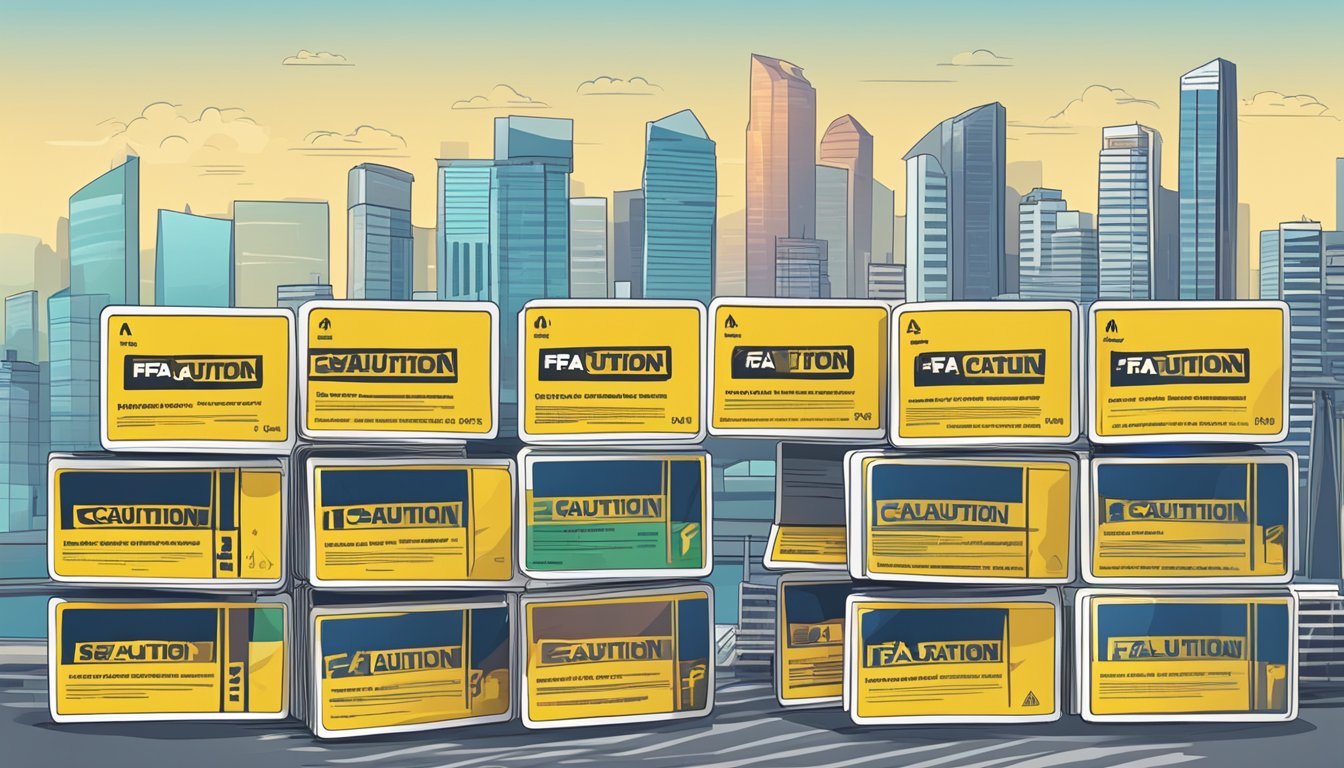If you’re looking to buy property in Singapore, it’s important to understand what a caveat is and how it can protect your interests. A property caveat is a legal document that is lodged with the Singapore Land Authority to protect the buyer’s interest in the property after the payment of a deposit. It serves as a formal warning or notice that informs the public of the buyer’s legal claim or interest in the property.

Navigating the property caveat landscape in Singapore can be challenging, but it’s an essential part of the property buying process. Before you buy a property, your lawyer will do a search to make sure that there are no existing caveats on the property. If there are, your lawyer will advise you on what steps to take to proceed with the purchase and protect your interests.
Understanding caveats in Singapore is crucial for anyone looking to buy property in the country. With the right knowledge and guidance, you can navigate the property caveat landscape and protect your interests when buying property in Singapore.
Understanding Caveats in Singapore

If you are planning to buy or sell a property in Singapore, you may have come across the term “caveat.” A caveat is a legal document that protects the interest of a person or entity in a property. In this section, we will explore what a caveat is, the role of the Singapore Land Authority (SLA), the process of lodging a caveat, and the relationship between Option to Purchase (OTP) and caveats.
What Is a Caveat?
A caveat is a legal document that establishes and protects the interest of a person or entity in a property. It serves as a formal warning or notice that informs the public of the buyer’s legal claim or interest in the property. Caveats are important in real estate transactions in Singapore as they ensure transparency and security.
The Role of the Singapore Land Authority (SLA)
The Singapore Land Authority (SLA) is responsible for maintaining the land registration system in Singapore. The SLA is the government agency that oversees the registration of caveats. When a caveat is lodged, it is recorded in the land registration system, and the SLA issues a caveat certificate to the caveator.
Lodging a Caveat: The Process
To lodge a caveat, you need to fill out a form and submit it to the SLA. The form requires you to provide details such as the property’s address, the type of caveat, and the caveator’s particulars. Once the SLA receives the form, they will process it and issue a caveat certificate to the caveator.
Option to Purchase (OTP) and Caveats
If you are the buyer of a property, you can lodge a caveat to protect your interest in the property. This is especially important if you have paid a deposit and either exercised an Option to Purchase (OTP) or entered into a sale and purchase agreement in relation to the property. The caveat serves as a legal document that establishes your interest in the property and prevents others from buying the property.
In summary, a caveat is a legal document that establishes and protects the interest of a person or entity in a property. The Singapore Land Authority (SLA) is responsible for maintaining the land registration system in Singapore and oversees the registration of caveats. To lodge a caveat, you need to fill out a form and submit it to the SLA. If you are the buyer of a property, you can lodge a caveat to protect your interest in the property, especially if you have exercised an Option to Purchase (OTP) or entered into a sale and purchase agreement in relation to the property.
Navigating the Property Caveat Landscape

As a property buyer or seller in Singapore, navigating the property caveat landscape can be daunting. This section will provide you with the knowledge you need to search for existing caveats, interpret transaction data, and understand the legal considerations when dealing with property caveats.
Searching for Existing Caveats
Before you buy or sell a property, it’s important to conduct due diligence and search for any existing caveats. The Urban Redevelopment Authority (URA) Transactions Portal is a useful tool for this purpose. It provides public information on private residential property transactions with caveats lodged or Options to Purchase issued within the last 60 months.
To search for caveats, you will need the project name, district, and postal district of the property in question. The URA caveat system provides information such as the sale and purchase agreement, option to purchase, and other relevant legal documents lodged with the property caveats.
Interpreting Transaction Data
When interpreting transaction data, it’s important to understand the difference between private residential property transactions, resale transactions, and subsale transactions. Private residential property transactions are based on Options to Purchase issued by developers, while resale and subsale transactions are based on caveats lodged with the Singapore Land Authority (SLA).
You should also pay attention to the property type, ownership, tenure, and unit price. This information can help you gauge the interest of potential buyers or sellers and determine a reasonable price for the property.
Legal Considerations for Property Buyers and Sellers
When dealing with property caveats, it’s important to understand the legal procedures and potential complications. A caveat is a legal claim on a property that can be lodged by anyone with an interest in the property. It can be used to secure the property or protect legal rights.
However, withdrawing a caveat can be a complicated process that requires a court order. It’s important to work with a conveyancing lawyer who can guide you through the conveyancing process and ensure that you comply with the Land Titles Act.
In conclusion, navigating the property caveat landscape in Singapore requires due diligence, understanding of transaction data, and knowledge of legal procedures. With the help of the URA Transactions Portal and a conveyancing lawyer, you can secure the property and protect your legal rights.
Frequently Asked Questions

How can one lodge a caveat on a property in Singapore?
Lodging a caveat on a property in Singapore is a simple process that can be done by engaging a lawyer. Once your lawyer lodges a caveat on the property you’re in the process of buying, others will find out that your transaction has priority.
What’s the duration of a property caveat’s validity in Singapore?
The validity of a property caveat in Singapore is six months. It can be extended after six months if the need arises.
Where can you find online services to purchase property caveats?
There are several online platforms where you can purchase property caveats in Singapore. These platforms offer a wide range of options to choose from, and the prices are usually reasonable.
What are the steps to verify a property’s caveat status in Singapore?
To verify a property’s caveat status in Singapore, you can check the Singapore Land Authority’s website. You can also engage a lawyer to help you with the process.
Is it possible for a foreigner to lodge a caveat on Singaporean property?
Yes, it is possible for a foreigner to lodge a caveat on Singaporean property. However, the process is slightly different from that of a Singaporean citizen. Foreigners are required to engage a lawyer to lodge the caveat on their behalf.
What are the latest guidelines for rental caveats in Singapore?
The latest guidelines for rental caveats in Singapore state that landlords are required to lodge a caveat on their property if they have leased it out. The caveat protects the landlord’s interest in the property and ensures that the tenant does not sell or transfer the property without the landlord’s knowledge.
By following these guidelines, you can ensure that the process of lodging a property caveat in Singapore is smooth and hassle-free. So, go ahead and lodge a caveat on your property today to protect your interests!




